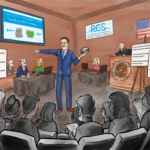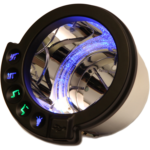Reach the mountaintop more often with these tips
For lawyers who want to learn to make the most of those little opportunities that always come along to further a client’s case during trial, there is no replacement for time in a courtroom.
So says Patrick Dunphy, a Brookfield lawyer with more than 30 years of trial experience and various record-setting verdicts to his name. But that doesn’t mean there’s no hope for those with far less trial time.
Even the most green, Dunphy said, can take certain steps to make sure they present the best-possible arguments on behalf of their clients.
Perhaps the simplest is preparation. Know your facts, know the law and try to gain an understanding of whatever sort of complicated subject matters you are likely to encounter in the case — whether it be medicine, engineering or something more technical.
“That is the only way to get the jury’s confidence so that they can trust you because you know what you are talking about,” Dunphy said, “and it allows you to simplify things for the jury so it can better understand the more complex parts of the case.”
Also, lawyers should know their audience, said Rob Rosenberg, president of Rosenberg Consulting Services, which specializes in courtroom technology and trial graphics. He has been consulted in thousands of cases, including the infamous Slender Man trial and the Laurie Bebo fraud case.
“I think the biggest thing is probably knowing your audience in advance and starting to think visually earlier,” said Rosenberg.
If it’s a bench trial, he said, try to understand the way the judge likes to see information presented. With a jury, in contrast, things are not quite so easy.
“One of most important things for lawyers to do is to stop thinking like a lawyer and start thinking like a trier of fact,” Rosenberg said.
Chris Stombaugh, a trial attorney, agrees. The longer lawyers practice, he said, the less likely they are to understand how people outside the profession think. Yet it’s those everyday people, and not the professional colleagues whom lawyers often spend most of their working hours among, that are most important to be able to communicate with.
Stombaugh, a trial lawyer who started his career in Platteville and now runs a law firm partially dedicated to teaching trial attorneys, said there are primarily two things attorneys can do to understand how jurors think.
The first, he said, is to take arguments that you are considering using in a trial and try them out on focus groups. This procedure should help a lawyer gauge how a jury is likely to respond to a particular argument.
Stombaugh’s second piece of advice also stems from his belief that the most important thing lawyers can do is to know their audience. Legal professionals, he says, should do their best to get up to speed on developments in fields such as social psychology and behavioral economics.
Researchers, he said, are constantly finding that people make decisions for reasons other than those that were usually invoked in the past. Jurors tend, for instance, to pay less attention to the content of an argument than they do to the attorney presenting the argument.
Thinking like a juror also means that lawyers need to communicate like a juror — like a layperson, in other words.
Above all, Dunphy said, they should avoid legalese.
Also helpful is anything that will make arguments simpler, whether that be analogies or visual aids. Care should be taken to make sure whatever you choose fits well into the bigger picture of your argument.
“Bad analogies don’t work,” Rosenberg said. “As a matter of fact, they make your case harder to try. What does work is strong, concise meaningful and deliberate visuals. … Often times people don’t know why they want to have a visual other than to prove one little thing.”
View original article here: https://wislawjournal.com/2016/01/27/how-to-win-trials/






